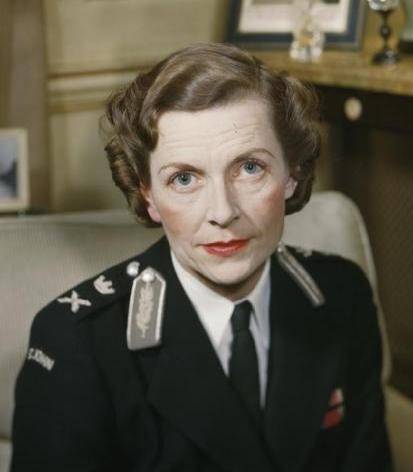Judge Sophie Buckley presided over the UK First-Tier Tribunal (Information Rights) appeal to determine the fate of some redacted sections of diaries and correspondence dating back to the 1930s
Certain aspects of the personal diaries and letters involving Lord Mountbatten, the last Viceroy of India, his wife Edwina and India’s first Prime Minister Jawaharlal Nehru, at the heart of an appeal to decide whether they can be fully released for open public access, will remain redacted after a UK tribunal ruling.
Judge Sophie Buckley presided over the UK First-Tier Tribunal (Information Rights) appeal to determine the fate of some redacted sections of diaries and correspondence dating back to the 1930s.
She concluded recently that Southampton University did not “hold” any correspondence entitled “letters from Lady Mountbatten to Jawaharlal Nehru, the first Prime Minister of the newly independent India (33 files, 1948-60), along with copies of his letters to her” as part of its Broadlands Archive and was only “physically safeguarding the papers” on its premises.
“The Mountbatten collection is important historically but there were also important issues at state – not least abuse of state power and the censoring of our history,” said historian Andrew Lownie, who had launched a four-year-long battle for the release of the papers for his book ‘The Mountbattens: The Lives and Loves of Dickie and Edwina Mountbatten’.
Lownie, who has spent over 250,000 pounds of his savings on the case, notes that “now that 30,000 pages of diaries and letters have been released”, any major revelations are unlikely as much of the information is available in other books and diaries.
He believes his fight was on the “crucial principles of censorship and freedom of information”. The papers cover an important period of British-Indian history, including when India’s Partition was being overseen by Mountbatten and involves personal diaries and letters of both Lord Louis and wife Lady Edwina Mountbatten.
The UK Cabinet Office had maintained that most of the information from those papers is already in the public domain and any withheld aspects “would compromise the UK’s relations with other states”, with reference to India and Pakistan.
In 2011, the University of Southampton purchased the archival material, named Broadlands Archive, from the Mountbatten family, using public funds of over 2.8 million pounds and with the intention of making the papers widely available. However, the university then referred some of the correspondence to the Cabinet Office.
In 2019, the Information Commissioner’s Office (ICO) had found in favour of Lownie and ordered the release of the entire Broadlands Archive.
The University of Southampton had explained in response at the time that the correspondence between Lady Mountbatten and Nehru remained in private ownership and is “confidential but the University has a future interest in it”. It could have applied to purchase those letters but has reportedly chosen not to.
The 2019 decision of the ICO was appealed, which was heard in the First-Tier Tribunal in November last year and has now been concluded.
In the lead up to the hearing, the Cabinet Office had narrowed the number of exemptions they were seeking to impose so most of the letters and diaries were available by then.
“This is a victory after four years of campaigning but there is still a legal bill of 50,000 pounds and so the crowfunding has to go on,” noted Lownie, in his Crowdjustice.com fundraiser appeal.
ALSO READ:Ambani plans takeover bid for UK high street chain Boots
The author says he has raised over 63,000 pounds in pledges from the website to fund the legal costs of the appeal.
The diaries of Mountbatten, who was a great-grandson of Queen Victoria, a cousin of Queen Elizabeth II, an uncle to the late Duke of Edinburgh and great-uncle to Prince Charles, also contain personal correspondence within the royal family – another factor cited behind some redactions.
In May last year, Southampton University said it was publishing online “previously unavailable papers” from the Broadlands Archives collection and that further material would be made available during the course of the year. It is claimed that a majority of the material from the diaries is now in the public domain.
“The Broadlands Archives collection is one of the University Library’s foremost collections of manuscripts… this substantial collection dates from the sixteenth century to the present. The material provides a preeminent resource for British politics in the nineteenth and twentieth centuries,” the university notes.

Leave a Reply